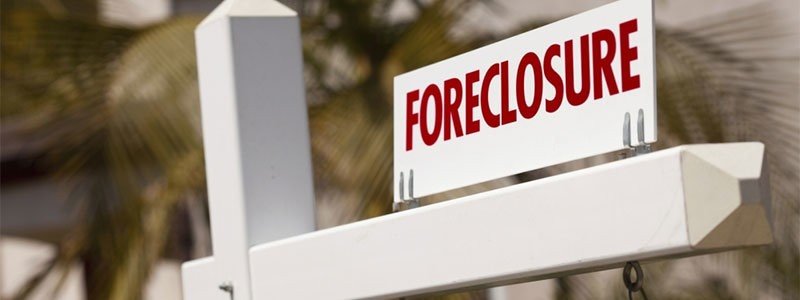
One of the most common questions I hear from people who are struggling with debt is, “How will foreclosure affect my credit score?”
If you are considering foreclosure as a way to manage your debt, there are several things you should know.
How Will Foreclosure Affect My Credit Score?
Your FICO score—generated by one of the most widely referenced credit scoring systems in the country—can range from 300 to 850.
Each time you apply for credit, the lender will consult this number. The higher the score, the less of a risk you are to the creditor. A low score suggests the borrower is less likely to repay the debt, so the lender may not be willing to provide a loan, or if they do, the interest rate may be higher. Therefore, maintaining a respectable number can be important.
The impact of foreclosure on a credit score takes two forms: first, there is a negative impact from each missed payment. Because the foreclosure process can sometimes take several years to complete, this negative monthly impact can cumulate to be very substantial over time. Second, the foreclosure judgment will also have a negative effect on your score. The foreclosure judgment could make your score drop 50-100 (or more) points. Ironically, the higher your original score, the more damage you will sustain with a foreclosure judgment. The foreclosure judgment will stay on your credit report for seven years.
There is no hard-and-fast rule regarding when you’ll be able to obtain another loan or credit card. Each lender will view the situation differently. Most will view a foreclosure judgment as a strong indicator of future credit risk.
Fortunately, the negative impact created by foreclosure isn’t permanent—although, those seven years will feel like a very long time. Even while the foreclosure is still listed on your credit report, there are ways to start improving your credit score. Paying all your existing bills on time will help improve your score. Even after a year, you’ll start to be rewarded for your effective debt management in the form of a better credit score. Depending on what your score was before the foreclosure, it could take between three and seven years to regain your original credit score.
The damage to your credit score might be slightly less if there wasn’t a deficiency balance reported by the lender. The deficiency balance is the amount owed to the bank after the property is sold.
Is a Deed in Lieu of Foreclosure or Short Sale a Better Option?
There are ways of mitigating the negative impact of foreclosure on credit. The two most prominent options are a “short sale” or a “deed-in-lieu of foreclosure.”
If a lender accepts a short sale, it means you are able to sell the house for less than what is owed. In exchange, the lender will reduce or eliminate the remaining balance owed.
In contrast, in a deed-in-lieu (“DIL”) of foreclosure, the homeowner deeds the property to the lender rather than a third party. Similar to a short sale, the lender will reduce or eliminate the remaining balance owed.
Both a short sale and a DIL curb the damage to credit from foreclosure. Both options will end the foreclosure process, so they will end the negatively monthly impact of the missed payments. Additionally, they both prevent foreclosure judgment, also mitigating the damage to credit.
But with that said, there are consideration beyond credit impact that go into deciding whether a short sale or a DIL are the right decision.
Will Modifying a Loan Have the Same Affect?
A loan modification, for those who qualify, can be another way to mitigate credit impairment. Similar to the short sale and DIL, a loan modification will end the negatively monthly impact of the missed payments. Additionally, it will prevent foreclosure judgment.
Consider Your Future
There are many factors that go into evaluating foreclosure alternatives, including credit impact. If you are struggling to pay your debts, seek professional help right away.
While I do act as a Clearwater foreclosure lawyer, I also have extensive knowledge and experience with loan modifications and debt negotiation. Let me help you determine the best option for your situation. Fill out the form to the right. After a free, no-obligation consultation, you’ll have a better idea of what your future may hold.






